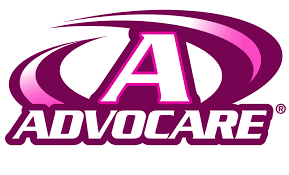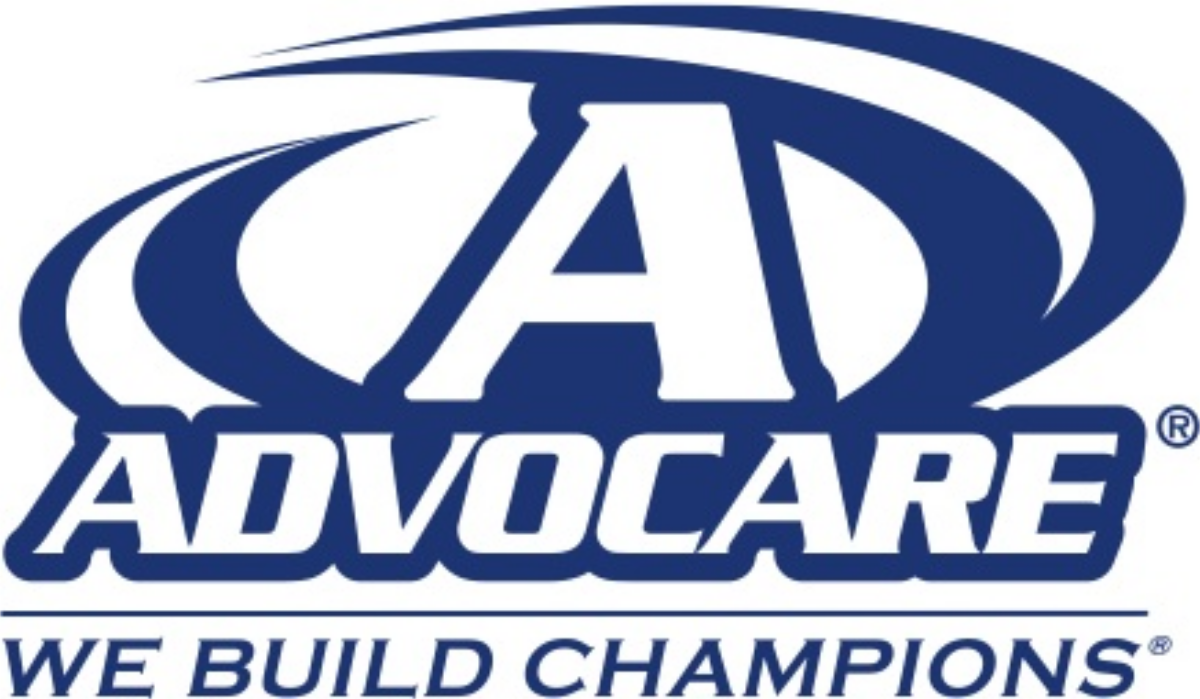Primerica’s Opposition to the FTC’s Proposed Business Opportunity Rule
http://www.ftc.gov/os/comments/businessopprule/522418-11929.pdf
EXECUTIVE SUMMARY
The proposed Business Opportunity Rule (“Rule”) pursues the laudable goal of preventing fraud in the work-at-home, pyramid and vending machine marketplaces. But the Rule does not narrowly define and prohibit the specific practices in which the Commission has observed fraud. Nor is it limited to the types of business opportunities that have given rise to consumer complaints and Commission enforcement activity. Instead, the proposed Rule would broadly apply to legitimate and well-established financial services businesses, such as Primerica, as well as the large and growing U.S. direct selling industry—an industry that generates nearly $30 billion in revenues annually, providing income for more than 13.6 million Americans.
1 As a practical matter, the Commission’s goal of eliminating fraudulent work-at-home and pyramid schemes threatens legions of legitimate businesses that contribute greatly to the American economy and to the livelihoods of millions of middle-income Americans. The Commission should revise the Rule to narrow its scope and proposed remedies to address fraudulent practices related to work-at-home, pyramid marketing and vending machine schemes directly, while excluding legitimate businesses from its burdensome requirements.
A. The Rule Should Exclude Licensed Insurance Companies and Registered Broker-Dealers Because They Are Already Subject to Extensive Regulation.
Primerica is a subsidiary of Citigroup, a publicly traded Fortune 100 company. It operates primarily through a life insurance company (rated A+ Superior by A.M. Best) and a securities broker-dealer. Primerica has over 2 million life insurance policies in force for a total of $534 billion in face amount and $27 billion in securities assets under management. Primerica has an excellent record of paying claims on life insurance policies, and paid out almost $700 million last year in claims. Beneficiaries of Primerica’s insurance policies included families of victims of the September 11th and Katrina tragedies. The industries in which Primerica operates—insurance, securities and loans—are each heavily regulated not only by an extensive network of federal and state laws, but also by a very active and capable group of federal, state and self-regulatory agencies (e.g., the Securities and Exchange Commission (“SEC”), National Association of Securities Dealers (“NASD”) and 50 State Insurance Commissioners). Collectively, these multiple layers of regulation make Primerica an inappropriate candidate for yet another regulator. Any company operating in this highly regulated environment must constantly prove its commitment to honest and fair business practices. The fact that the NPRM makes no mention of fraudulent practices in the insurance or broker-dealer industry underscores the fact that these segments of the economy do not need the proposed Rule.
Moreover, it is questionable whether the Commission even has jurisdiction to apply the Rule to the insurance industry, one of the principal segments of Primerica’s business. The McCarran-Ferguson Act2 provides for the supremacy of state law in regulating the “business of insurance” and enforces this policy by preempting federal laws that encroach on state authority in that arena. To the extent the proposed Rule purports to regulate matters governed by state law, it is “reverse preempted” by the McCarran-Ferguson Act. Put simply, although it is doubtful that the Commission has jurisdiction to regulate in the insurance industry, a licensed insurance and registered broker-dealer exemptio n is appropriate in any event because existing regulators, particularly insurance regulators, already scrutinize the conduct the Rule targets. Primerica is clearly not the type of company that the Commission intends to target by the Proposed Rule.
B. The Burdens Imposed by the Proposed Rule Are Enormous, and Would Fall Disproportionately on Legitimate Businesses.
The burdens created by the proposed Rule would fall disproportionately on legitimate businesses, leaving perpetrators of fraud relatively unaffected. As an initial matter, the compliance costs of the “basic” disclosure requirements are significant. The proposed Rule requires disclosure of litigation without regard to its relevance to any business opportunity. The requirement to disclose litigation of all “affiliated” companies would greatly exacerbate the burden for legitimate companies. Primerica, for example, as a subsidiary of Citigroup, has more than 3,400 affiliated companies whose litigation must be disclosed. The resulting voluminous disclosure would more likely mislead consumers than help them. The litigation disclosure applies to any type of proceeding in which certain types of allegations are made, regardless of whether there was ever any finding of actual wrongful conduct. Eve n if the forum that heard the case rejected the allegations, the case must be disclosed. This listing of cases on a government-required form will encourage readers to infer that the company has done something wrong—an inference that is without foundation. The disclosure tarnishes legitimate business with presumed guilt and provides no way to distinguish between unproven (or disproven) allegations and actual findings of wrongful conduct. In short, there is no rational basis for the breadth of this disclosure requirement as applied to legitimate businesses.
The proposed reference disclosures are likewise extremely burdensome and would harm both the consumer’s privacy and business’s legitimate interests in protecting confidential information. As currently drafted, the Rule would require companies to create and maintain either a massive listing or a complex database of hundreds of thousands of records, providing a ready conduit for the theft of highly valuable confidential and trade secret information by competitors. These recordkeeping requirements will impose substantial burdens on individual agents, requiring them either to carry around and supply massive listings to every contact or to repeatedly and on a timely basis access, customize and print a “ten nearest” listing for each contact.
The required earnings claim disclosures do not address the crucial distinction between pyramids and legitimate multilevel marketing—i.e., in pyramids, compensation is based on recruitment, rather than sales for consumption. As a result, the vast majority of participants in a pyramid scheme cannot earn substantial returns, regardless of the time and effort they devote, because there is no underlying business to sustain returns. The earnings disclosure does not enable consumers to distinguish between legitimate and illegitimate companies and therefore is not an effective remedy. Moreover, false earnings claims are already prohibited by existing laws, both at the federal and state levels. Imposing a new disclosure requirement on Primerica and similarly situated companies that already police earnings claims would add complexity and costs without corresponding consumer benefits.
The most egregious requirement is the waiting period, which is simply regulatory overkill. Most direct selling independent agents work part time, often from their homes, and meet with consumers in their homes or in similar informal locations. Any waiting period will require arranging for and making hundreds of thousands of extra home visits. The significant additional time commitment for both agents and new recruits, as well as added paperwork, creates a substantial disincentive to join, or continue, with a company. American consumers, accustomed to buying automobiles and big screen high definition television sets costing thousands of dollars on instant credit with no delay at all, are unlikely to regard a federally mandated waiting period as a neutral requirement. Instead, they are far more likely to conclude that a mandatory waiting period is an indication that something is seriously wrong that should cause them to avoid exploring an opportunity, even if the commitment is only $199. Thus, a waiting period will likely create a government-generated stigma around becoming a direct selling agent.
C. The Rule Would Crush Small, Independent Businesses.
Primerica’s agents are independent contractors that operate their own small businesses. Under the proposed Rule, these independent agencies would be classified as business opportunity sellers. As sellers, they would have to prepare their own disclosure documents, in addition to providing Primerica’s disclosures. Even if independent agents are excluded as sellers, they will necessarily bear the burden of compliance. The proposed Rule’s many requirements would weigh heavily on independent agents, particularly for the vast majority who work part time from their homes, without corporate infrastructure. These substantial burdens would fundamentally alter the calculus of recruiting for independent agents. By deterring individuals from joining Primerica through the waiting period and the misleading litigation disclosure, the proposed Rule would directly impact agents’ ability to continue to prosper in the Primerica sales force.
In addition, the loss of privacy and the misuse of “references” lists by competitors would further harm Primerica’s agents. Requiring agents to publicly disclose names and telephone numbers of potential recruits would be the equivalent of handing a competitor a list of potential recruits to target. To be sure, these events will damage Primerica itself, but the first economic victims of the proposed Rule would be the small businesses run by individual Primerica agents.
D. The Impact on Primerica and Its Agents Would Be Devastating.
For the reasons discussed, the proposed Rule would have a substantial impact on Primerica’s ability to recruit new agents. For Primerica, its sales force is a primary asset of the company. Because part-time agent turnover is relatively high, the ability to recruit new agents is critical to the company’s ability to maintain this asset. The proposed Rule would impose significant and unavoidable new burdens on agents who attempt to recruit, ranging from the complexities of producing customized forms for each potential recruit, to the costs of obtaining and retaining a signed copy of the disclosure, to the problems of attempting to explain the irrelevant litigation of over 3,000 Citigroup affiliates, to the stigma inherent in saying that the Federal Trade Commission requires the potential recruit to wait days before deciding to pursue this opportunity. In this environment, recruiting will surely decline, with a predictable domino effect of falling sales, rating agency reviews, and increasing reserve requirements. Primerica believes that the reduction in recruiting would lead to a revenue loss that it conservatively estimates at $1 billion over the next ten years.
E. The Rule Exceeds the FTC’s Rulemaking Authority, and Is the Equivalent of Placing an Entire Industry under a Consent Decree.
The proposed Rule threatens the viability of Primerica’s well established and highly productive business model. In essence, the proposed Rule places the typically severe restrictions of a consent decree on an entire industry, even in the absence of any record evidence or factual findings that fraud is so widespread that such draconian measures are warranted. The Commission should adopt a narrower approach to preventing the fraudulent work-at-home, pyramid and vending scams that constitute its real concern. If adopted in anything close to its current form, well-established principles of administrative law would subject the Rule to outright reversal by a federal court of appeals.
First, it is likely that the Commission would exceed its authority by adopting the Rule in its current form because it fails to define specifically the deceptive acts and practices targeted by the Rule. The FTC Improvement Act permits the Commission to prescribe rules regulating or prohibiting unfair or deceptive acts or practices only if it “define[s] with specificity [those] acts or practices which are unfair or deceptive.”3 This specificity requirement is essential to preserving the basic statutory principle that a violation is first met with a cease and desist order, not a penalty. In its current form, however, the Rule falls far short of the statutory specificity requirement.
It is clear from the NPRM that the Commission’s real targets are work-at-home, pyramid marketing and vending machine scams.4 Yet the Rule does not define or prohibit any of these schemes. Instead, it imposes sweeping disclosure and waiting period requirements on all business opportunity sales, regardless of whether they fall within one of these id entified categories. Rather than defining with specificity the conduct it wants to prohibit, the FTC has simply proposed certain requirements putatively intended to prevent the successful operation of pyramid and work-at-home schemes, and then defined violation of those requirements as an unfair trade practice. That is impermissible under the FTC Act.
Second, there is no rational connection between the facts the Commission will likely find concerning the scope of the purported frauds and the Rule’s current approach to combating them. The Commission does not have any evidence that problems involving unfair or deceptive acts or practices, including fraud, exist among the legitimate companies that are swept in by the proposed Rule, when the source of compensation to members of these companies is product sales, not recruiting. Without clear record evidence that the business sales opportunity frauds identified in the pyramid and work-at-home contexts extend to and include the life insurance marketplace or the financial services or multi-level marketing industry more broadly, or that fraudulent businesses will predominantly bear the costs of the Rule, it is arbitrary and capricious for the Commission to impose such draconian waiting period and disclosure requirements on legitimate businesses.
The Rule also creates burdens on legitimate businesses that far outweigh any reasonable expectation of reduced fraud in the marketplace. For example, Primerica’s routinely used business forecasting tools indicate that the proposed Rule would reduce its revenue by approximately $1 billion over ten years. These costs inevitably would raise prices for the millions of consumers who rely on Primerica for services and products, and would also negatively impact Primerica’s agents, who would be forced to incur inordinate administrative and time expenditures of their own and bear the impact of reduced business activity that would inevitably result from the proposed Rule. These costs are not offset by even remotely comparable benefits in protecting consumers from fraud.
Third, the Commission is required by statute to find that the fraudulent practices it has putatively targeted with the Rule are “prevalent.” But there is no evidence that problems exist with business plans in which the primary source of compensation to agents is sales for consumption—yet these are the businesses most affected by the Rule. The Commission certainly has not satisfied its statutory obligation of demonstrating that the fraudulent practices targeted by the proposed Rule are prevalent among the legitimate businesses that will bear the Rule’s burdens. Without a clear record demonstrating such facts, the Rule fails to satisfy the core statutory requirements of Section 57a.
Because the rule is so overbroad, unduly burdensome and not supported by the record to date, it is likely that a reviewing court would find the Rule adopted in its current form constitutes an “arbitrary and capricious” exercise of the Commission’s authority.
F. The Commission Should Modify the Proposed Rule to Cover Only the Fraudulent Transactions It Seeks to Regulate.
The Commission could adopt a variety of approaches to reduce the burden on legitimate businesses and more narrowly tailor the Rule to reach only the fraudulent transactions it seeks to regulate. At minimum, the Commission should exclude licensed insurance companies and regulated securities broker-dealers like Primerica from the proposed Rule. As discussed, these companies are already highly regulated, and the disclosure and waiting period requirements create enormous costs for legions of legitimate businesses while merely replicating (at best) the fraud enforcement authority competently exercised by a host of state and federal regulators. Moreover, as discussed in detail below, there are numerous additional options the Commission should consider for focusing the proposed Rule on the fraudulent conduct it intended to reach. Alone or in combination, these revisions could significantly reduce the proposed Rule’s adverse impact on legitimate businesses, and increase the Rule’s focus on fraudulent practices.
***
Given these concerns, Primerica believes that public hearings are warranted to enable the Commission fully to explore and thoroughly understand the implications of promulgating the proposed Rule, including its negative and costly effects on legitimate businesses. Besides the factual submissions contained in this Comment, Primerica will offer witnesses in support of its position. The proposed testimony will focus primarily on the issues raised in Sections III infra, including the burdensomeness of the proposed Rule and the ineffectiveness of the proposed remedies. Primerica also requests its statutory right to present additional relevant facts on any alternative business opportunities rule proposed by the Commission in response to this initial round of public comments.





 Visit the
Visit the
I would ask, why don’t you care? It doesn’t bother you to know that things are systemically designed for women…
^^ What DJ said. We care because far too many have been hurt by MK and other MLM. The financial…
Mary Kay didn’t work out for you. That’s fine. Not everything works for everyone. If by not everyone, it's more…
"So why do you care so much?" MLMs like Mary Kay are peddled as an opportunity for most, when in…
Exactly! That was the nail in the coffin for me. And she was super against text messaging clients or prospects…